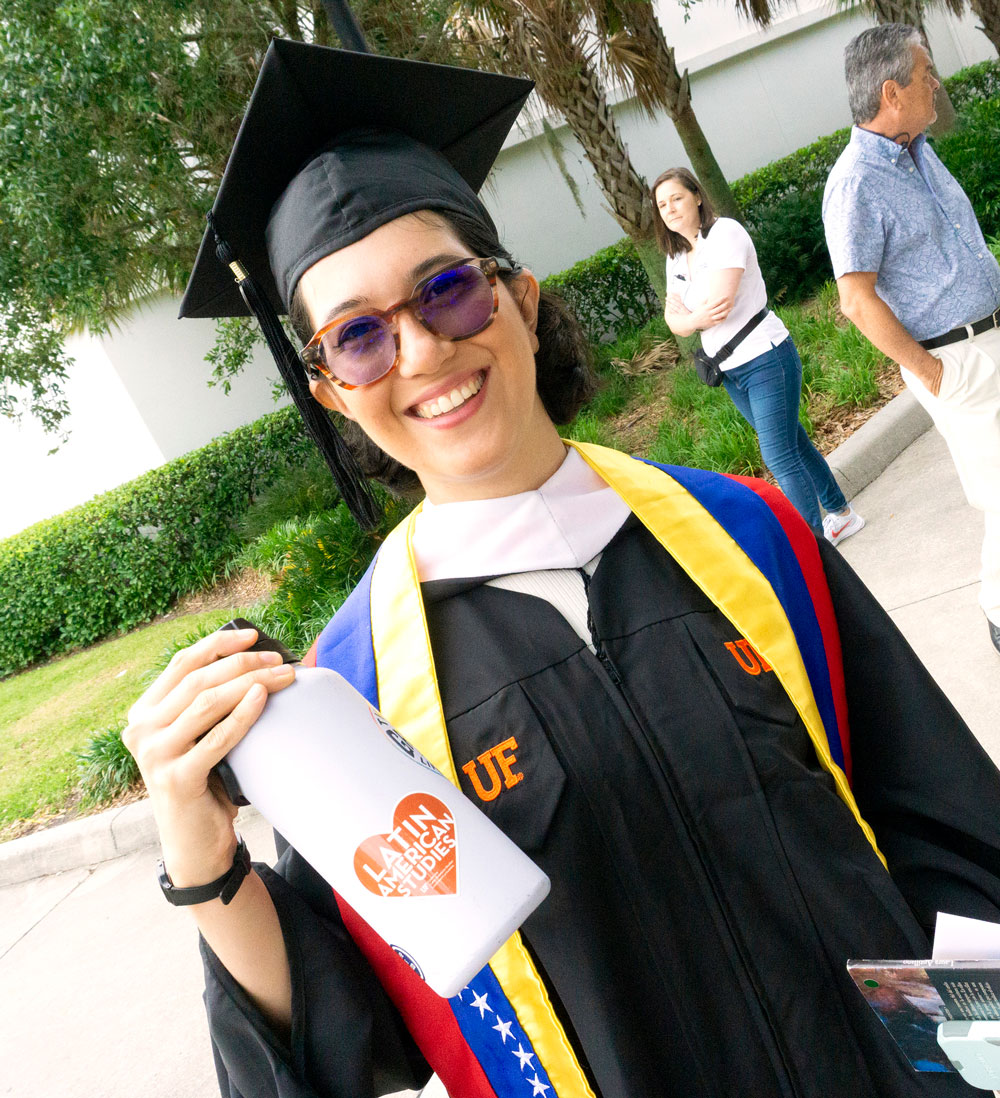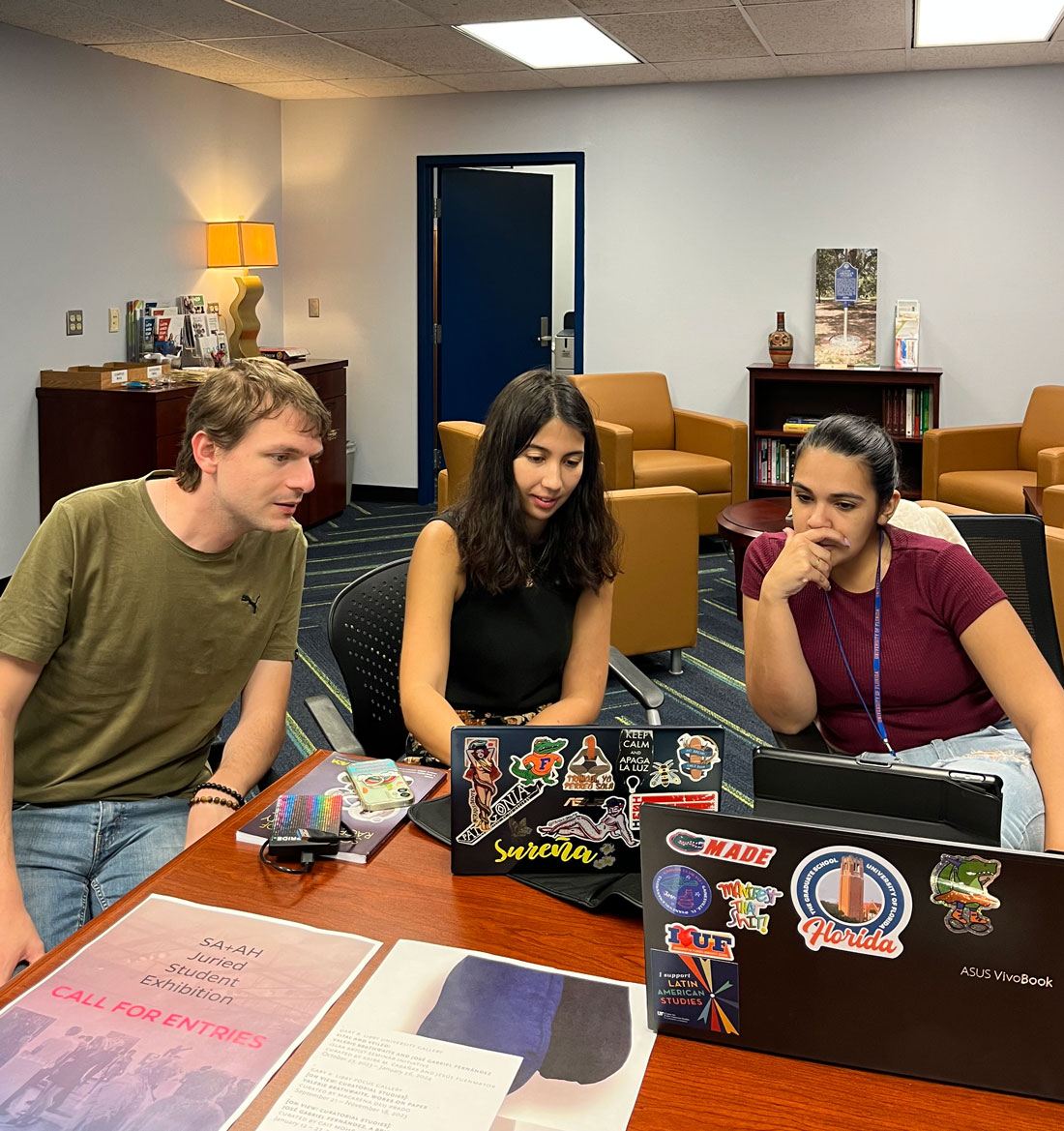 UF Center for Latin American Studies
UF Center for Latin American Studies

Latin America, with its geographic and political complexity, ethnic and linguistic diversity, and vibrant cultural life, is an exciting place to study and an increasingly important part of the world.
Latin American Studies affords students the opportunity to:
...and much more! With its interdisciplinary, multiregional focus, the UF Center for Latin American Studies will help position you at the center of intellectual, political, economic and cultural exchange with Latin America.

The Master of Arts in Latin American Studies (MALAS) program is based on the premise that a full understanding of Latin America and the Caribbean requires an interdisciplinary perspective. The degree program enhances students' understanding of an important region of the world and provides training in relevant analytical and problem-solving skills.
The Center for Latin American Studies is uniquely poised to help students achieve their educational and career goals with a MALAS degree. With over 170 experts on the region, the Center is recognized today as one of the top-ranked centers internationally and has been continuously designated as a National Resource Center by the U.S. Department of Education since 1961.
Are you interested in the Master of Arts in Latin American Studies program? Complete our Prospective Student Form and the Assistant Director for Academic Affairs will reach out to you with more information.

Growing up in a bicultural family has shaped my fascination with diverse cultures and fueled my desire for global exploration. Born in Foz do Iguaçu, Brazil, on the triple border with Ciudad del Este (Paraguay) and Puerto Iguazú (Argentina), I was immersed in a rich cultural diversity. The first years of my childhood were spent in Paraguay, where my Brazilian mother and Paraguayan father introduced me to cultural diversity. I navigated between languages, with Guarani and Spanish as my first tongues. Upon entering primary school in Brazil, I embraced Portuguese as my native language. Driven by my passion for travel and cultural exploration, I decided to participate in an exchange program, eventually leading me to migrate to the United States. In 2015, I embarked on an enriching journey as part of the Au Pair program, marking my initiation into life as an immigrant in the US. This immersive experience deepened my appreciation for diverse cultures and gave me a unique insight into the dynamics of Latina migration. Inspired by the transformative impact of my experiences abroad, I dedicated myself to advancing my academic pursuits, ultimately deciding to pursue a Master's in Latin American Studies. This decision reflects my commitment to delving deeper into the complexities of Latin American migration, history, and culture while seeking to bridge gaps and foster understanding between diverse communities.
View our Student Profiles! Student SpotlightMy MALAS degree and related internships gave me the foothold into my current career. While in the MALAS program I interned at the State Department. I didn’t know it at the time, but that internship introduced me to two of my future bosses. When I graduated from the MALAS program, I immediately moved to Washington, D.C. to start the Hispanic Division Huntington Fellowship Program at the Library of Congress. I certainly would not have secured that fellowship except for my degree and thesis research experience.
What Our Alumni SayWhen I was hired by Deloitte, they were excited about my international background and my experience in Latin America. The research I had to do as a MALAS student was important to expand my knowledge of issues such as the political and economic environment, the business culture, and the opportunities available in the region. Hence, the MALAS degree was crucial for my development as a professional.
What Our Alumni SayThe MALAS program challenged not just my intellectual and academic development but was a catalyst for the understanding of my own identity and social position as a Latina. The opening of a position in Hispanic Latino Affairs at UF led me to the field of Student Affairs. After a year of working with the Hispanic-Latinx student population, I was promoted to Assistant Director of Multicultural & Diversity Affairs. I currently work on social justice education initiatives and run an intergroup dialogue program called Gatorship.
What Our Alumni SayMy MALAS degree and related internships gave me the foothold into my current career. While in the MALAS program I interned at the State Department. I didn’t know it at the time, but that internship introduced me to two of my future bosses. When I graduated from the MALAS program, I immediately moved to Washington, D.C. to start the Hispanic Division Huntington Fellowship Program at the Library of Congress. I certainly would not have secured that fellowship except for my degree and thesis research experience.
What Our Alumni Say